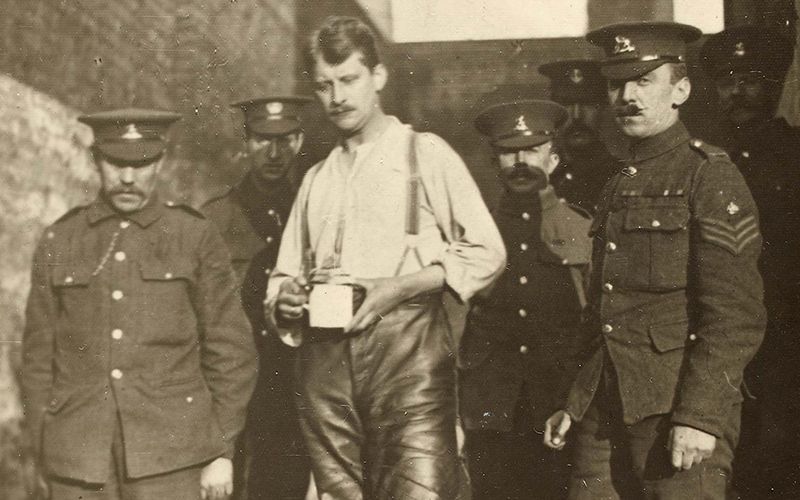| An Irish cottage |
I vividly remember what it felt like to be regarded by her old, old eyes. Every Christmas Day we drove to her tiny cottage on the other side of town in County Donegal to collect her for the annual dinner.
That was an event. My father would park the car and I would walk through her tiny front gate and ring her doorbell. I expected a gentle chime but it would blare like a battleship. Then I'd wait wordlessly for her shadow to appear behind frosted glass.
When you're that old everything takes time, but it was worth it to hear all her long ago stories. When she told them time stopped, or seemed to flow backward, until ghosts appeared and she'd laugh or sigh to recollect them.
One Christmas children playing on the street outside her house stopped to warn me, "Don't go in to that house! A witch lives in there!" How right they were. She was magic. She'd put on her coat and her old lady hat, and then we would start the slow step by step walk over the ice to the car.
“Which one are you now?” she'd ask me, and I'd tell her my name. She'd ask me who I was every Christmas. It didn't occur to her that I could take offense so it didn't occur to me either.
When I'd hold her hand, I'd notice the blackened old veins like tiny tributaries. I held her like a piece of parchment that might disintegrate or blow away in a strong wind. She was stronger than she looked though, much stronger.
It's an event when an aged person takes the place of honor at an Irish family gathering. We were always on our best behavior for the three or four hours of her annual visit. First she's have a sherry by the fire, then she'd hand us some presents before the call to dinner. There was a kind of rhythm to it that I loved. She was the center or the totem and we danced around her.
Her presents were sweaters and socks and woolen hats and black braces. They were gifts of the 1930's. I would thank her and almost bow and then I'd look at my father and he would look back at me. My brothers would sometimes mutter under their breath or smile but they would never complain. It was Christmas. You were supposed to be good at Christmas.
She remembered things my father did as a boy. I was fascinated by that because I could not picture him ever being one. “He wasn't always a good boy, you know,” she confided in me at the dinner table. Her tone was matter of fact. My eyes widened. “Did he ever tell you about the time he - ”
My father would quickly interrupt and send me away on a fools errand. Anything to change the subject. She'd forget what she'd been talking about by the time I returned. It was like this every Christmas. She'd speak of people long dead as though she'd meet them that morning. She often got confused about the living. She belonged to another era that was moving through this one.
In fact she had lived so long that I thought she always would. She was older than the oldest people that we knew. Somehow, somewhere she had borrowed time. What impressed me most was how much fun she appeared to be having.
In an age denying culture like America's, where every wrinkle is an admission of mortality, and where mortality is an admission of defeat, they would have found her good humor a puzzle. Didn't she know she was ancient? How could she be getting happier with each passing year? But it seemed she had long ago resigned herself to the sorrows of life, and to its joys too, and she had just kept on going.
Soon enough, if we're lucky, we'll all be her. And what she taught me was not to dwell on the things that only made me sad or stressed. Everything passes, the good and bad. Her example made me think that it might not be dreadful to be that old someday. It might not hurt like they say it will. So the image I carry of her will be the one I will carry always. It's of the time I saw her dance in our kitchen, but just for a moment, and very gently, like a young girl, to an old tune she was humming as she moved.




Comments